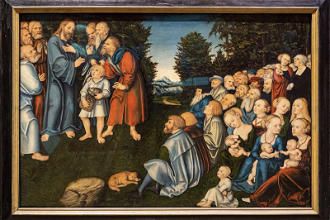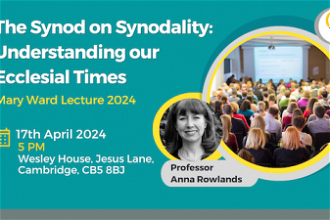Remembering Daniel Counihan
1917-2001 My father-in-law, Daniel Counihan, former editor of the Catholic Herald, who died last month, was a distinguished journalist and broadcaster, and a distinctive voice on BBC radio and television in the three decades that followed the second world war. A wealth of memories accumulated over that period, made any time spent in his company an enriching mixture of anecdote, information and eyewitness account.
To those engaged in the same or similar fields, as I am, he was unfailingly generous in passing on his experience and knowledge, as well as his values: the overriding importance of correct facts and balance in reporting, good grammar and clarity of expression in language, and an appreciation of the human and spiritual dimension in any story.
It was towards the end of his career that he became editor of the Herald, but he brought his professionalism to bear on all aspects of the paper, not only in content, where he improved arts coverage, but also in the development of what might be termed its human resources - many journalists now working in what used to be called Fleet Street credit him with helping them to further their careers while he was editor.
He also changed the colour of the masthead to blue, the colour which symbolises the Virgin Mary.
Born in 1917 in London, he attended St Ignatius' College and Hornsey School of Art, and began his career as a journalist before the war, freelancing for agencies, journals and newspapers, with the local court shorts an early beat.
He married Joan Mary Bermingham Newton, daughter of the author and journalist W Douglas Newton, in 1939, shortly after the outbreak of the second world war, during which he served in the Royal Army Medical Corps and the Royal Artillery, seeing action in North Africa, Sicily, and in Italy at Anzio and Monte Cassino. Even in the armed forces, his journalistic qualities came to the fore and he joined the Ministry of Information in 1944 as Vatican correspondent, working also for the United States Office of War Information.
He remained in the armed forces after the war, becoming head of the news division of the Allied Information Services in Trieste, where his duties included setting up a news service but also investigating Axis atrocities.
He left the army with the rank of Major in 1947, and was invited to join the staff of the BBC news division, reporting from a number of the world's trouble spots, including Cuba, West Africa and Vietnam, over three decades that are regarded as a golden age of foreign news and war reporting. He was also appointed assistant diplomatic correspondent in 1959 and eventually given the prestigious Moscow posting, eventually being expelled as part of "tit-for-tat" exchanges between East and West in 1971. A spell as Commonwealth correspondent preceded his appointment to Buckingham Palace, where he was soon being addressed as "Daniel" by the Queen (although as "Major" by the Duke of Edinburgh). He retired from the BBC in 1976, writing a book, "Royal Progress" to coincide with the Queen's Silver Jubilee in 1977, but one of his regular writing commitments, the Charterhouse Chronicle in the Catholic Herald, led to his becoming the editor in 1982.
Eventual retirement had its rewards. One drawback in the otherwise exciting life of a foreign correspondent is the imbalance between work and family life. For a father of five sons and three daughters, constant travel to distant points of the compass often proved a wrench, but no trip was ever completed without a selection of souvenirs being brought back to the family home, now in Sussex. Regular visitors to the Counihan household in Brighton could not help noticing that its head was usually abroad, although evidence of his talents and interests abounded in the paintings and prints hanging on every available wall space, in other words, any area of wall not covered by bookshelves. He was a voracious reader and acquirer of books, his collection the subject of a number of features in magazines and newspapers. Anyone stuck for a reference would be directed to the right source in no time. He reviewed for the Times Literary Supplement, and continued to contribute articles to a wide range of publications, throughout his broadcasting career. He had also written a children's book, "Unicorn Magic", published by Chatto and Windus in 1953, dedicated to his three eldest children, which has recently undergone a critical reappraisal, being described as a missing link between E Nesbitt and JK Rowling.
A useful sportsman in his youth, he was also, like all his family, a keen supporter of Tottenham Hotspur, although after moving to Sussex he also developed an attachment to Brighton and Hove Albion.
He died in Hastings on March 25 after a short illness. He is survived by his wife and six of his eight children.
Nick Szczepanik The Times


















